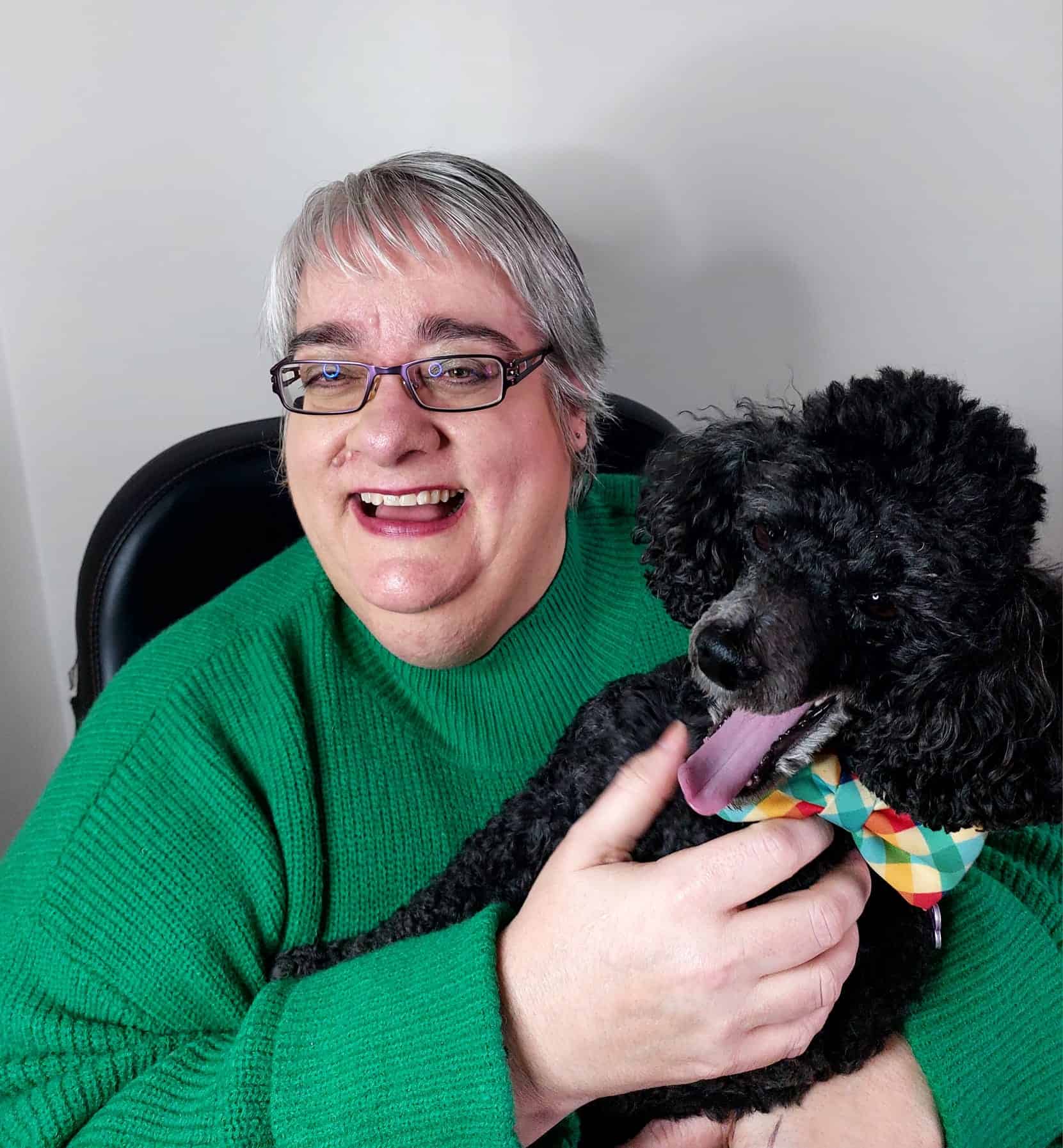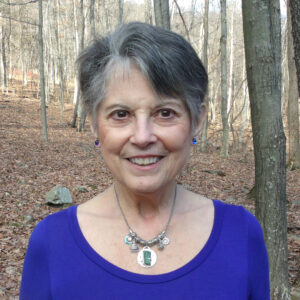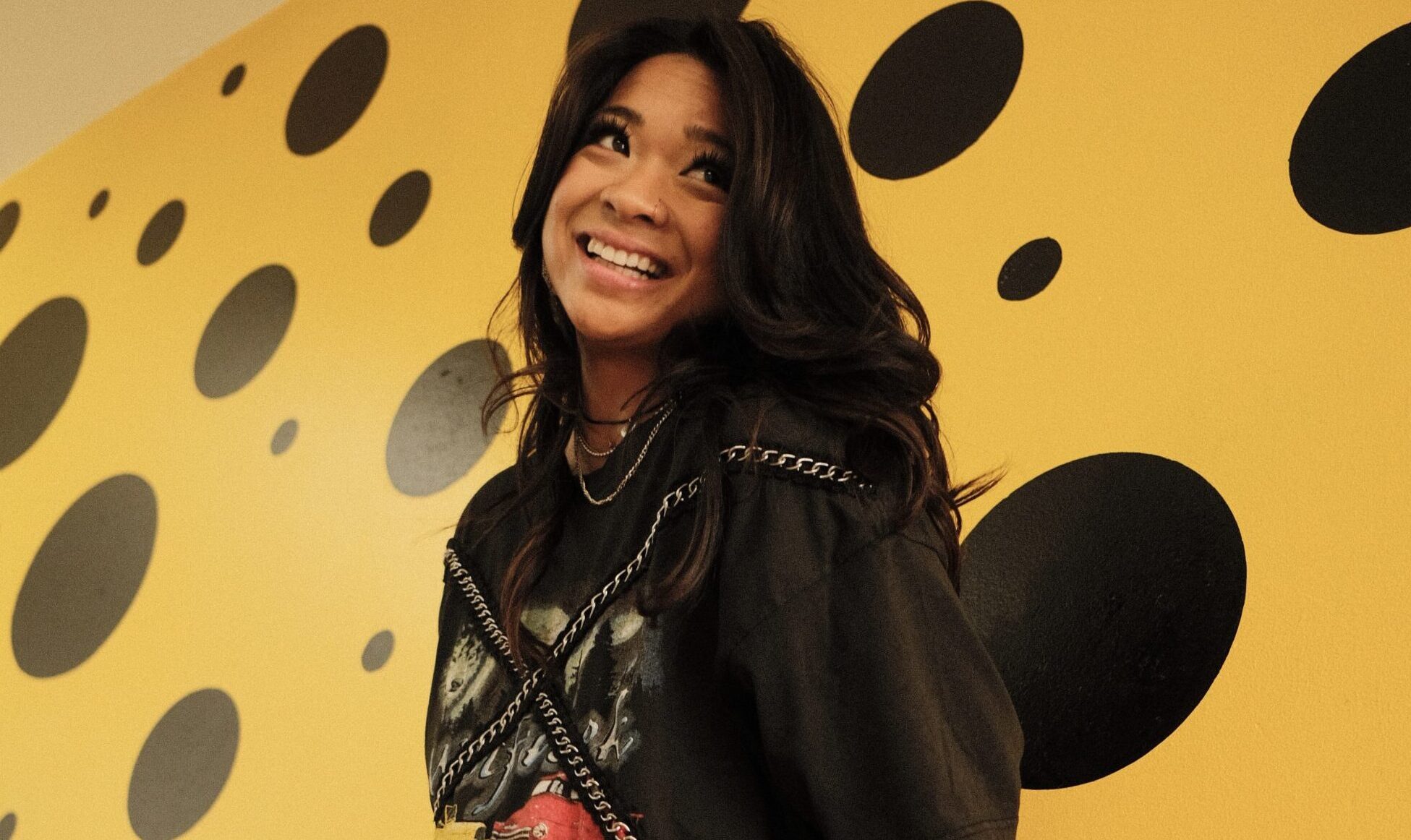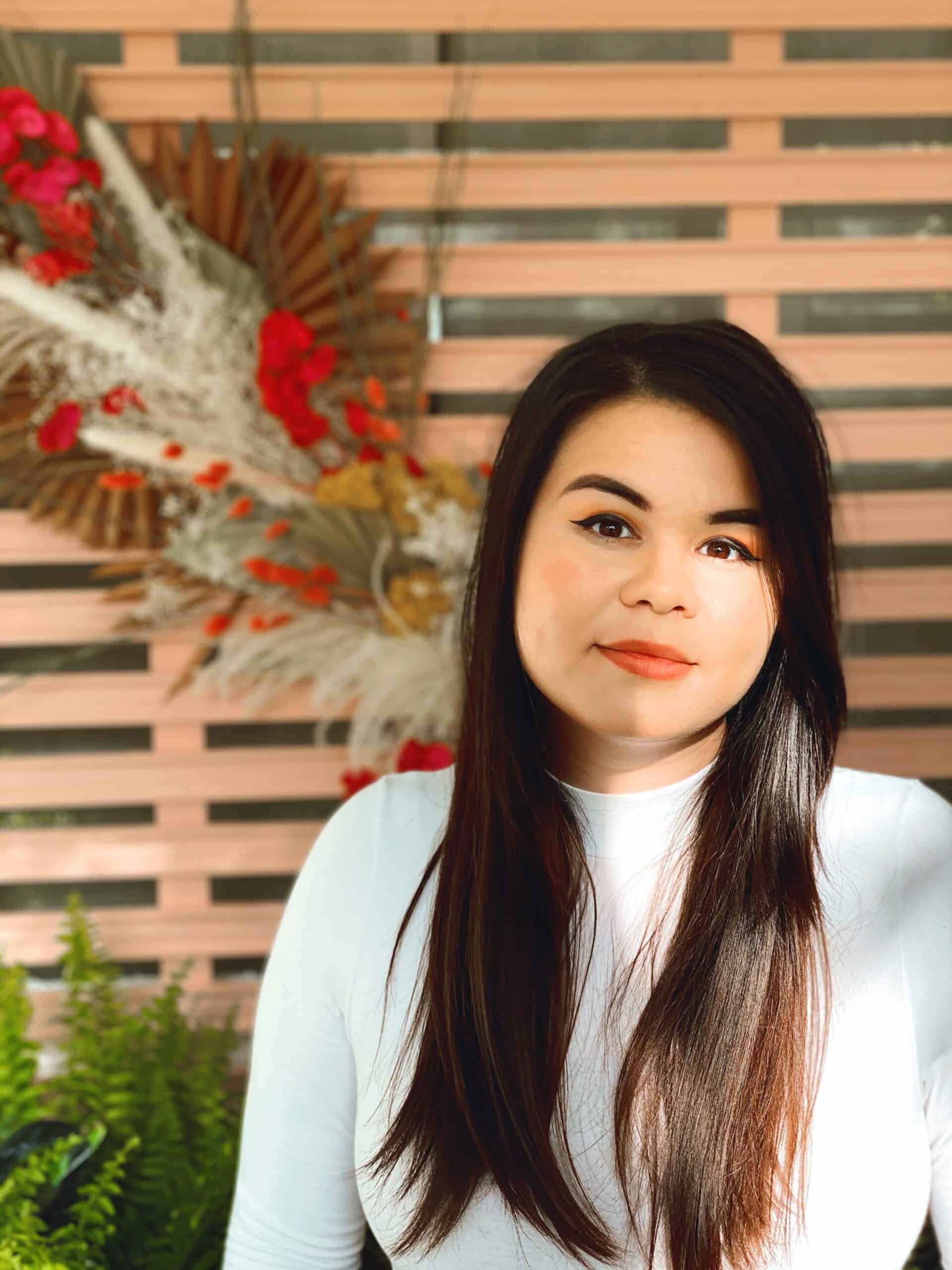Join us as we delve into the inspiring journey of Nicole Demos, a resilient advocate for disability rights and inclusion. Through personal reflection, unwavering determination, and a deep commitment to self-care, Nicole has overcome numerous challenges to embrace her true self and amplify the voices of others in the disabled community. From navigating systemic ableism to finding empowerment through community support, Nicole’s story is a testament to the power of resilience and the importance of creating a more inclusive society for all.
What inspired you to embrace your identity as a proud disabled individual and advocate for your needs?
Inspiration evolved after I attended an online workshop facilitated by Cath Brew in which she championed the concept of embracing our individual identities and self worth. This coincided with my being elected as a SENIA (Special Education Network Inclusion Association) Europe board member. I then was fortunate to be introduced to Judy Heumann by Becky and I read her autobiography with fervor. This trifecta served as the catalyst to my proudly embracing my disability. Through further research, online webinars and conversations I then came across Emily Ladau and Demystifying Disability and I learned all about the importance of language, finding voice and advocacy.
What followed was a series of firsts – podcasts, presentations, interviews, workshops, social media posts, guest blogs and deep reflection. Perhaps the most impactful awakening came when I realized that I was worthy of the same intensity of advocacy that I continued to provide for the countless students whom I taught and still teach.
There is a famous quote by Verna Myers, a leading diversity and inclusion expert that says, “Diversity is being invited to the party. Inclusion is being asked to dance.”
So here I am almost 54, embracing my disability identity, having been invited to the party and FINALLY asked to dance with pride.

Could you elaborate on the concept of systemic ableism and its impact on individuals with disabilities?
Systemic or institutional ableism includes the physical barriers, policies, laws, regulations and practices that exclude people with disabilities from full participation and equal opportunity. This is deeply rooted in cultural and historical norms around the world and needs to be addressed. Simply stated the world is not designed to support people with visible and invisible disabilities in every aspect. Those of us able must carry on the legacy of those before us who were the first trailblazers to ensure that our community is treated with equity, dignity and respect. Others who have not experienced systemic ableism must be educated on our history, they must ‘see, and feel what it is like not to be able to have access to spaces, jobs, health care, education, social events. If they also are also ‘different’ because of gender, sexual orientation, religion then all the more reason to connect and fight together for what is right.
Disabled activist and author Alice Wong states, …”Tackling systemic ableism may feel like tilting at windmills, but it is still easier to address than some kind of failing within ourselves”…
How fitting, it is imperative to take even a tiny step towards those tilting windmills, we have to make progress and encourage the next generation to continue our fight.
What specific challenges did you face during your advocacy journey, especially in a foreign country like Finland?
When I moved to Finland, almost fourteen years ago, to teach at the International School of Helsinki I was in awe of how disabled children and adults were cared for and treated with the utmost respect. There were more accessible spaces, transport options, and there was an infrastructure in place to make life easier and equitable. All of the disabled people I saw in public were not ridiculed or ignored, they integrated and belonged. People regardless of gender wore the latest fashions with confidence and some even dared to have rainbow colored hair! WOW this felt like heaven on earth to me. I learned that my health needs were a priority so that I could lead a fulfilled life amongst others. At that time not knowing Finnish was not a priority so I felt positive that I could remain here indefinitely.
Sadly, this safe haven suddenly became a minefield for me and many other foreign disabled and able bodied persons. The lack of language, and knowledge that previous benefits and laws had changed by the new government were now the major challenges I faced over the past year or so. I experienced medical ableism by those who took oaths and made promises to give me care, listen to my needs, communicate openly, explain solutions and plan collaboratively on how to best rehabilitate me. I was body shamed, discriminated against, ridiculed and ignored all because I could not communicate in Finnish. Deprived of basic hygiene, being isolated from much needed physical therapy and counseling further exacerbated my already fragile state. I was not treated with equity and the dignity deserving of a human being. I felt a burden, not deserving of even minimal care despite paying taxes for what was thought to be excellent healthcare.
How did you find the courage to fight for your health needs, especially after experiencing neglect from various healthcare systems?
In order for me to find the courage to fight I reached rock bottom emotionally and physically. I had to accept the fact that I was the most responsible for my overall wellbeing and it was up to me to fight the hardest. The realization that while loved by my mom, my friends, families, colleagues and those I met on online platforms, I needed to love myself first and foremost because I was indeed worthy. If as an inclusive educator who consistently advocated for the needs of her students and empowered them to fight, why would I not do the same for me. I am grateful to Upama, Sharon, April, Snezana, Cath, Ang, Lori, Becky, Christine, Sabra, Gerry, Tracey, Bridget, Kathleen, Katherine, Giota, and so many others who saw that my light, albeit somewhat dimmed, that just needed to be re-lit.
Inspired by a quote from the late Judy Heumann, “I want to see feisty disabled people change the world”, I felt a renewed passion to be one of the many feisty individuals. I owed it to myself to continue on the journey of advocacy, acceptance, accessibility, awareness, in every facet of life and in every environment. Why wait 52 years to embrace my disabled identity if I was not willing to embark on battling systemic ableism and continue to speak up and for others who are unable to? Regaining mental and physical health I can share my recent negative health experiences with others in Finland and elsewhere. I have so much more to contribute, amplify and change.
What strategies or resources did you utilize to navigate through the complexities of advocating for yourself?
One of the resources I used to navigate was to read the poetic words of Rumi as they spoke to my soul and restored my resilience. In turn I was able to share my reflections with a new friend, Upama, as Rumi is one of her favorite authors. I also embarked on exploring Buddhism and the meditative practices involved, my experiences so far have intrigued me to move forward. Attending therapy and taking medication for my depression has also been effective to restore my mental health. Changing aspects of my sedentary lifestyle that I could control like diet, physiotherapy and self – care and overall mindset are beneficial for me.
What followed was a gradual reconnection to the strategies I indulged in before I got ill almost a year ago. I also found the energy to revitalize communication with people in my inner circle and then with groups I was a member of like Diversability, SENIA International and SENIA Europe, Flowerescue among others. Similar to a rebirth, I am engulfed by an energy to further my personal and professional growth, to raise my voice with heightened urgency and allowing myself to ‘let go’ of toxicity in my life. I am on a new journey to be healthier, stronger and empowered.
Can you share any memorable moments or milestones from your journey of rewriting your story?
The memorable milestones of my journey are many and fortunately they continue
despite various challenges along the way. I am fully aware that my journey is far from
over and I have much more to contribute and change not only for me but for others.
Here are just a few highlights and I am open to others now and in the future.
Listening to my first podcast facilitated by empowering author, LGBTQ+ , Inclusion
Consultant and friend Cath Brew
Listening to my second podcast with the amazing author, inclusive educator and
Executive Director of SENIA, and friend Lori Boll ,
Asked to contribute a very challenging and cathartic guest blog for an incredible
inclusion consultant, colleague and friend April Remfrey
Keynote Speaker at the ECIS Inclusive Education Conference in March 2023 in Athens, Greece at my old high school,
Presenting at CEESA, Nordic Network, and SENIA in person and online conferences
Becoming an active member of the Diversability Leadership collective

What advice would you offer to women who may feel stuck or hesitant to speak up for their needs and identities?
Embrace the fear and uncertainty of your hesitancy and your feelings of being stuck. Share even the smallest of your needs in the format that feels the most comfortable at first. Choose the person/people who you believe will listen with intent to what you need, deserve and hope for. With regard to your identity, explore all aspects and over time take steps to make that part of the unique person you are. Reach out to others who inspire or challenge you. There is no roadmap or set of instructions to follow. When you experience moments of sadness, doubt, anger etc, reflect on the steps you have courageously undertaken and celebrate yourself in that moment. Allow yourself to feel every emotion fully and rise above those clouds by practicing self care, and surrounding yourself with like minded friends/allies.
It is equally important to recognize that some family members, friends and colleagues may not be ready, willing or able to accept you as you embark on the next chapter. You must become the expert and advocate of your needs and identity even if the cost of doing so may hurt, you will be rewarded with true love, friendship and opportunities in the long run. Trust me there are days now when I still feel doubts, sadness and question the connections I thought ran deep.
How important has self-care been in your journey, and what practices do you find most helpful?
Self-care is extremely important for all of us in any journey, I would compare it to a soothing balm to an open wound or a damaged soul. Upon reflection, there was a time during my recent health issues when I refused to care for myself, negating the value of self-care, and therefore diminishing my worth. It was only when I reached the depths of despair and wanted to die by suicide, that new friends/carers performed the smallest yet most significant combinations of gestures. I was given the grace, space and time to cry, an ugly cry that was deeply rooted in my toes, the gasping for breath, the dryness of quivering lips, while my hands were held, and my tears wiped away. The confident whispers of “let it go” and “it will be okay” provided me with further encouragement to slowly lessen my sobs. Making the decision to speak to a therapist and take medication for depression were the next steps. With the gentle guidance of these two friends I re-engaged in self-care practices that spoke to my soul. Meditation and deep breathing came first followed by listening to music, journaling and singing. Finally being able to shower after 10 months, in a shower chair, feeling water and the lather of scented soap on my delicate skin.
Other self-care methods include baking, cooking, reading, enjoying flavored coffee or tea, using scented lotions, massages, face, hand and foot masks, long conversations, LEGOS, Yankee candles, spending time with my toy poodle Sisu, hanging out with true friends and my work as an inclusive advocate of course.
Could you describe the role of community and support networks in empowering individuals to rewrite their stories and advocate for themselves?
Humans have a desire to connect and belong, to create lasting relationships with others regardless of life circumstances, to have the freedom to express themselves fully. Therefore the role of community and support networks is critical and necessary for all who are open to be a part of them. Consider this quote by Stella Young, comedian, journalist and activist “My disability exists not because I use a wheelchair, but because the broader environment isn’t accessible.” This speaks to more than just the physical environment that is created, it strengthens the argument for deep connection and support so that all people can belong in a barrier free world.
How do you maintain resilience in the face of setbacks or challenges along the way?
By staying true to the real me, by living each day with intent, embracing positive and challenging moments while learning and reflecting. Surrounding myself with friends/family who empower and support me, those who realize that my disability is only part of me. Remembering to practice self-care and to engage in those hobbies that fill me with joy. Accepting that setbacks are not a reflection of my weakness or internal bias, and not punishing myself for those. Feeling every emotion without hesitation and then searching for allies and resources to further assist me. In this way I fully understand that I am not alone and then in turn meet others where they are at presently. There is no final destination or cure, everyone is on their own unique journey.
Looking back, what would you say has been the most rewarding aspect of rewriting your story and embracing your true self?
The freedom to be my true self, the joy of not having to conform, the volume and tone of my stifled voice, the choice of sharing my life with those who empower, love, accept and lift me without hesitation. In addition I am more comfortable with my true self at present, I look in the mirror, and smile rather than wincing with disgust at my image. I wear colorful clothes, use makeup and jewelry that represent my mood with more ease. My eyes exude genuine confidence and warmth. Some may argue that the emphasis is solely on physical changes and not on my emotions. My answer is that I chose to renew my look because my heart, emotions and soul are healed. Every visible, invisible scar, tattoo and spasm are symbols of my advocacy journey. They are constant reminders of where I have been, where I am at present, and where I will go.
Have you encountered any misconceptions or stereotypes about disability during your journey, and how have you addressed them?
When I fully embraced my disability identity I reassessed how my words and behaviors influenced or affected how others in society and in my community viewed me. A recent realization that ‘disability’ led to others feeling uncomfortable, helpless or needing to express pity when I was around hurt somewhat but then served as a catalyst to advocate for myself and others. I also recognized that systemic ableism led to environments and situations that devalued those with disability and it was up to us to raise our voices and awareness to this.
The misconceptions and stereotypes are listed below but they vary in intensity and still continue to the present day.
Staring, teasing, exclusion from sport, social and creative events, not being heard or seen, talked at or down to, ignored, lack of accessibility in public spaces, institutions and transport, loss of job opportunities because of disability disclosure. Ableism in all its forms, loss of friendships and intimate relationships, body shaming, discrimination and racism, being used because you have access to accessible parking or reduced ticket prices to social activities. The assumption that I have more than one disability and the judgment shown towards me, lack of education about disabilities, lack of positive representation in media, arts, education, history, to name a few.
The best way to address them is for me to mention how they make me feel in the moment, to not let them fester. The language and approach I use depend on who it comes from and the possible reasons behind the misconception and stereotypes. I need to speak my truth in a respectful manner and not to accept that the person may be ready to accept my truth. I need to educate, lift other disabled individuals up as there is strength in numbers. Giving up or giving in is not an option in 2024.
What steps do you think society needs to take to become more inclusive and supportive of individuals with disabilities?
Society needs to remove physical and emotional barriers that prevent inclusivity and view disability, whether visible or invisible in a negative, dirty way. Opportunities to live productive and healthy lives must be equitable for all in every facet of life. Awareness, acceptance and education are key tools to make this happen naturally and effortlessly. Belonging is at the core of everyones’ soul and while experiences and situations may differ a collective inclusive mindset is needed. Disability, whether permanent or temporary does not discriminate but how it is dealt with matters.
It is acceptable to not have an answer or viable solution, it is fine to not be aware at first how all people deal with disability and inclusion at the present moment speaks volume. Strive to be open to new mindsets, do not dwell on previous mistakes, address each disabled person directly and treat them respectfully and with dignity. Use appropriate language and avoid judgment at all times, continue along a path of humanity and growth.
Lastly, what are your hopes for the future, both personally and in terms of broader societal changes regarding disability inclusion?
I hope to continue learning, growing and embracing my disability through my words, behaviors and actions. I want to empower others to find voice and seek new experiences but also to let each do this at their own pace. I will grant myself grace when needed and I will collaborate with like minded individuals to pick up from those trailblazers, like Judy Heumann, who left such a legacy with their pacing. It is my wish that society does the same.
Personally I want to return to educating and advocating . My goals in the next year are to complete my website and my children’s book. I would like to write and speak more on other platforms and conferences. I am still a dreamer, and I can now hope that for some I am a role model.






